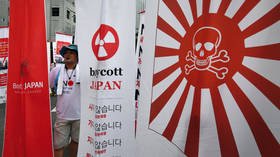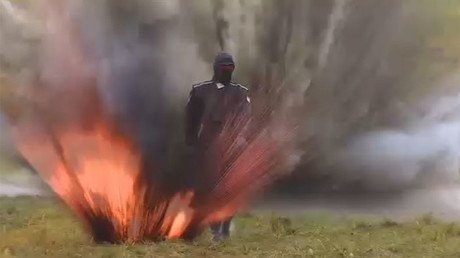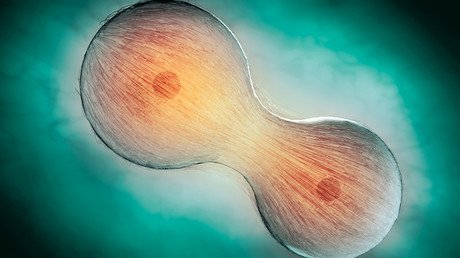2020 Olympics Radiationgate? Tokyo posts daily updates on S. Korea & Japan radiation levels after Seoul critics’ claims

The Japanese Embassy in Seoul is now posting daily updates on radiation levels in Japan and South Korea. It comes after Korean civil groups and officials suggested Japan may be unsafe for athletes competing in the 2020 Olympics.
The updates are published on the embassy’s website and show readings in the capitals of the two nations, as well as in Fukushima city and Iwaki, the capital and a large city in the Fukushima prefecture.
Fukushima was the scene of the world’s second-worst nuclear incident in 2011 after a powerful quake and tsunami damaged a nuclear power plant, causing reactor meltdown.
“The Japanese government intends to continue providing accurate information based on scientific evidence, and to communicate carefully and transparently,” the website said. “We hope that the Korean people will better understand Japan’s radiation levels.”
Also on rt.com South Koreans urge boycott of Japanese goods in row over WWII forced laborThe publication comes in response to a narrative in South Korea that claims Japan is unsafe due to radiation contamination, which originated from some civil groups and officials amid an escalating row between the two nations. The readings are well within the safety margin and show that Fukushima city, which is about 70km from the crippled plant, is about as dangerous as Seoul in terms of radiation.
In August, the South Korean government announced it will be doubling the checks of shipments of Japanese food for radiation levels. South Korea banned all seafood imports from eight Japanese prefectures near Fukushima in 2013 and kept taps on processed food from the country. So far, the increased scrutiny hasn’t led to increased rejection however, with four shipments totaling some five tons denied entry in 2019, roughly on par with previous years.
Lately, there were also some calls in South Korea to boycott next year’s Olympic Games hosted by Japan. Some of the arguments are that athletes may be served contaminated food, and that baseball and softball events will take place in the Fukushima city. If the Games are not boycotted, South Korea may insist on independent radiation tests at venues and separate cafeterias and food for its national team, proponents of the idea suggest.
Also on rt.com ‘Nazi parallels’: South Korea urges IOC to ban Japanese ‘rising sun’ flag at 2020 Tokyo GamesJapan and South Korea are locked in an escalating diplomatic row that started with mutual trade restrictions and has since widened to include numerous historical grudges. Seoul, for example, asked the International Olympic Committee to ban the use of Japan’s historic ‘rising sun’ flag due to its association with crimes committed during the Japanese occupation of the Korean Peninsula.
Like this story? Share it with a friend!














